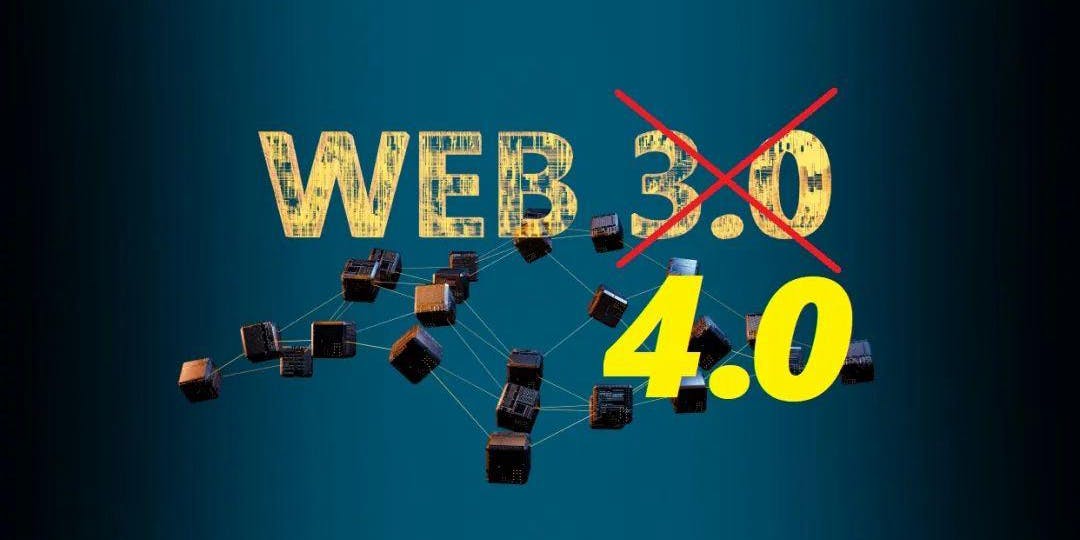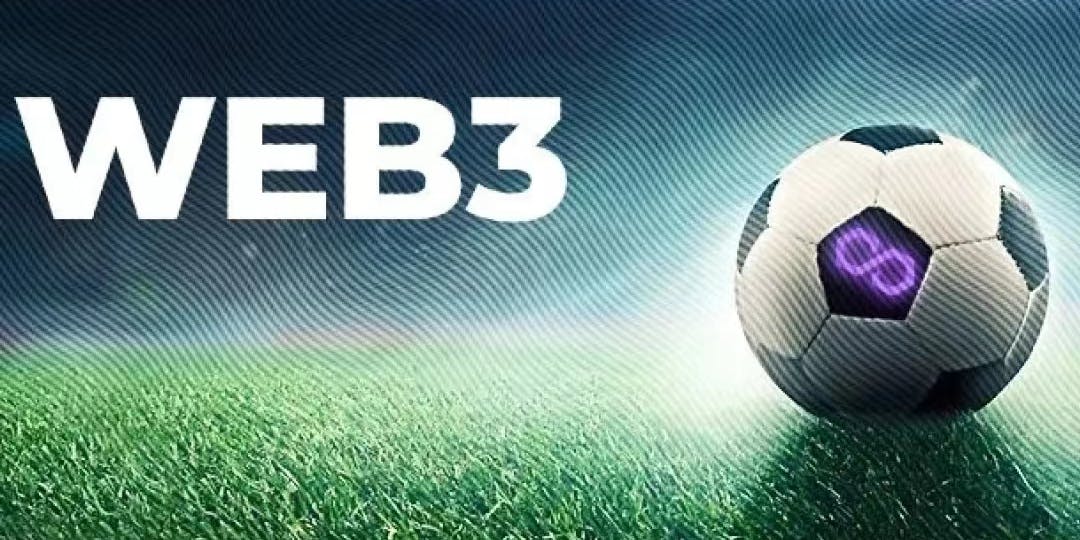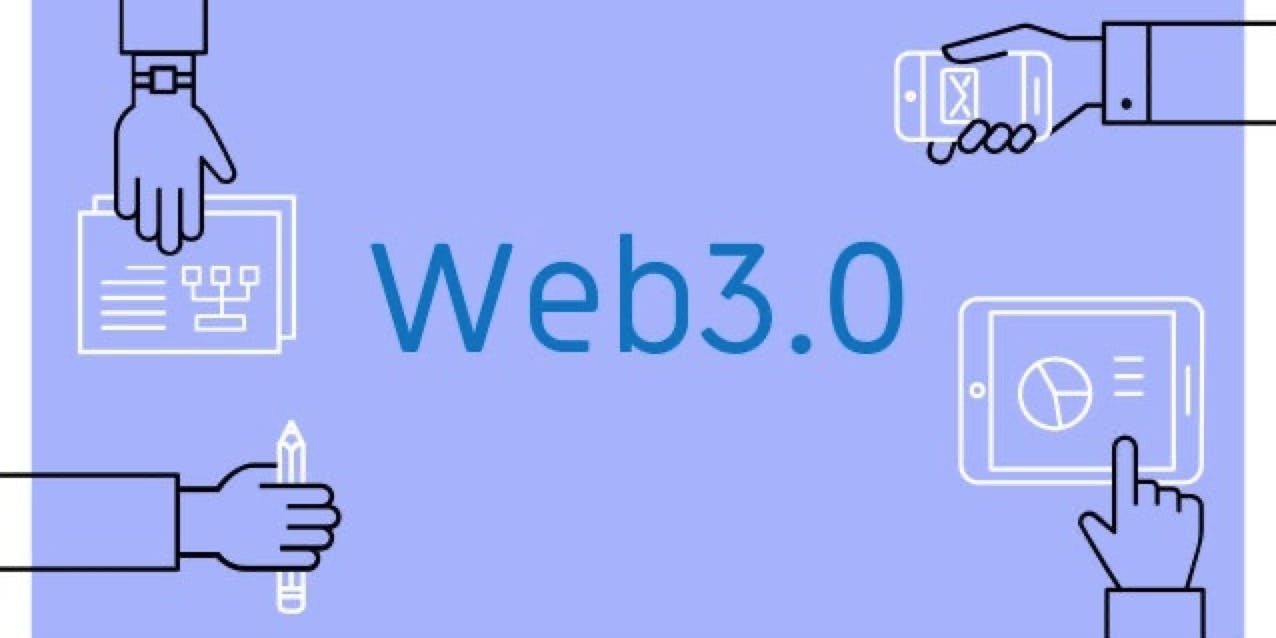
The EU Proposes Web4: What Impact Will It Have on the Crypto World?
On July 11th, the European Commission (EC) approved a new strategy on Web4 and the virtual world, aiming to guide the next technological transformation and ensure an open, secure, trustworthy, fair, and inclusive digital environment for EU citizens, businesses, and public administrations.

The concept of Web3 has not yet been fully digested by the world, and the European policy arena has introduced a new narrative of Web4. Is it the traditional world finally taking a step ahead to open the next mainstream narrative for the crypto world, or is it Europe, with a low awareness of crypto, attempting to overtake? In this article, the veDAO Research Institute will interpret the Web4 proposed by the EU.
Proposal and Web4
What is Web4?

The proposal released on July 11th states that Web4 responds to and covers the terms of Web3, and will become part of a new internet vision that integrates virtual experiences, the Internet of Things, and blockchain. The European Commission has clearly outlined the strategies and measures it will take to involve the EU more in the Web4 technology world.
In the EU proposal, the definition of Web3 is: "The main features of the third-generation Internet Web3 are openness, decentralization, and complete user sovereignty." Building on the current concept of Web3, the EU will allow the integration of digital and real-world objects and environments, and enhance the interaction between humans and machines, calling it Web4. In short, we can understand Web4 as an evolution of the Web3 concept, where the Internet of Things, blockchain, virtual reality, and augmented reality are integrated.
The EU emphasizes that the Web 4.0 and virtual world initiative mainly consists of four pillars. The first three are consistent with the goals of the 2030 Digital Europe project: talent skills, business environment, and public services. The fourth pillar includes the goals of infrastructure construction such as computing power and cloud, as well as the openness and global governance of Web 4.0 and the virtual world.
Although the European Commission also lists blockchain as one of the constituent technologies of Web4, the wording in the proposal is for a trusted blockchain, rather than a trustless blockchain supported by the native crypto world. At the same time, the European Commission has not yet provided any details, such as specific plans for how to integrate all the technologies together and give birth to this new narrative of Web4.
Plans Related to Web4
In this announcement of the Web4 strategy, many new initiatives were revealed: First, the announcement proposed an inherent plan of Horizon Europe, called the "Virtual World Partnership," expected to launch in 2025. The goal of this plan is to develop an "industrial and technological roadmap for the virtual world" by helping developers, creators, and companies that widely use the Internet understand this new trend, and also to experiment with new solutions together with all EU member states. Secondly, a project called "CitiVerse" was envisioned as a virtual universe for cities, to manage and plan the work and activities of cities in an alternative way, but its target audience was not detailed. Finally, the Commission proposed another idea involving "European virtual human twins," virtual replicas of the human body that can help doctors study disease outbreaks and treatments.
Regarding the introduction of new Web4 technology frontiers, Thierry Breton, the EU Commissioner for the Internal Market, stated, "Today, Europe is officially becoming the world leader in Web 4 and the virtual world. Europe has the conditions needed to lead the next technological transformation: innovative startups, rich creative content and industrial applications, a strong role as a global standard setter, and a favorable legal framework for innovation and predictability."
Challenges for Web4 in the EU
In the "EU Economic Outlook After 2030" released in March, digitalization was emphasized as one of its key driving forces, and Web4 is a major technological transformation that will bring a seamless, intelligent, and immersive world. After obtaining approval for the Markets in Crypto Assets (MiCA) in April, opening the door to cryptocurrencies and blockchain, the European Commission now hopes to go further and compete with US technological innovation.
From these messages, including the Web4 narrative, it is not difficult to see that the EU's regulatory framework is about to become one of the most relaxed in the world in the field of cryptocurrencies, and is willing to let the European continent stand out in the background of new technologies. However, it seems premature for the entire EU to discuss Web4 at this time.
A survey conducted by Consensys (the parent company of MetaMask) in June showed that only 8% of people in the EU are familiar with the concept of Web3. On the other hand, terms such as blockchain, cryptocurrency, and DeFi are still unfamiliar to those without experience, and are not yet understood by the majority. For many people who are not familiar with the basics of virtual currency, there are still significant barriers to understanding Web3 or Web4. Many European centers, such as Berlin, London, and Lisbon, are becoming centers for crypto and blockchain, but in other regions of the European continent, the meaning of the word "crypto" is still unknown.
Which Sectors of the Crypto Market Are Likely to Benefit?

After gaining an overall understanding of the grand strategy proposed by the EU for Web4, let's focus on the aspects that may benefit the crypto market. The EU's announcement about Web4 mentions that blockchain technology can be used to manage assets in the virtual world, such as virtual currencies or virtual real estate, and allows for secure and transparent transactions within the virtual world. There is also a lot of discussion about "virtual world" and "digital cities" in the announcement, which are the main future directions. Therefore, this may be positive information for the metaverse-related track.
The term "Blockchain" is mentioned 30 times, "Crypto" and related words 7 times, and "NFT" is mentioned 40 times in the EU proposal. Overall, NFT is also a key area mentioned in this EU proposal. The document points out that NFT is widely used in various applications. It acknowledges that "NFT promotes innovation in content creation and provides opportunities for artists (and creators). NFT platforms directly connect artists (and creators) with potential buyers at a lower cost." This consensus has already been widely accepted.
In addition, the proposal also suggests ways to combine NFT with traditional business: "In fact, NFT has been introduced into new business models. NFT can also be used in sales and event ticketing for specific use cases such as sports, fashion, games, and music." The application of NFT+traditional business is not yet perfect, and this signal from the EU may promote the development of this track.
Finally, the importance of blockchain for Web 4.0 in terms of security and privacy protection, cross-border payments, and international trade is also mentioned, but not discussed in detail. This may potentially bring growth points for the hot zk technology in the crypto market and the less popular payment applications.
Conclusion The EU has put forward the concept of Web4, seemingly wanting to accelerate in the blockchain field, surpassing the continuous expansion of Asia and the Americas in infrastructure, and planning to create and become a standard setter locally. However, the popularity of Web3 in Europe is still insufficient, and it will take time to observe how the concept-driven Web4 will unfold. Although the connection between Web4 and Web3 is not very close, the crypto tracks involved in the EU's active efforts may usher in a boom in the EU.
Original EU proposal document:
Link to original EU proposal document
Follow Us
veDAO is a decentralized investment and financing platform led by DAO, committed to discovering the most valuable information in the industry, and enthusiastic about exploring the underlying logic and frontier tracks of the digital encryption field, allowing every role within the organization to fulfill their responsibilities and receive rewards.
Website: http://www.vedao.com/
Twitter: https://twitter.com/vedao_official
Facebook: bit.ly/3jmSJwN
Telegram: t.me/veDAO_zh
Discord: https://discord.gg/NEmEyrWfjV
🔴Investment carries risks, and the project is for reference only. Please bear the risks on your own🔴



